“Children are born Mathematicians” Eugene Geist
Children from a very young age, are absorbing and developing emergent mathematical theories and constructs. They are able to use their senses to understand the world, even before they develop language.
Parents and educators can promote “school ready” mathematical skills by a combination of intentional teaching of concepts and using opportunities for reinforcing ideas and language while engaging in every-day activities. Language development is critical for children to develop understanding, and to be able to express their ideas. Take every opportunity to use the words listed below as you are conversing with your young child. Read stories, sing songs and teach rhymes with these concepts.
Mathematical Concepts
In the pre-school years children will absorb many mathematical concepts. It is essential that they also develop the language necessary to talk about these ideas. Children of this age learn well though hands on, concrete materials.
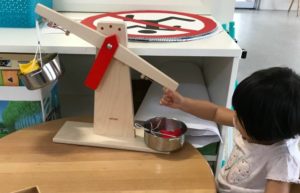
Number Sense – Learning to count with one to one relationship, early ideas of addition and subtraction – more, less, take away.
Measurement and comparisons – Size, weight, length. Long, longer, longest, short, shorter, shortest
Heavy, light, big, small, little, tall, near, far, empty, full, half, equal to. How tall are you? Who is the tallest in the family?
Time – Basic understanding of times in the day, hours, minutes, weeks, months, age, older, younger, soon, later, before, after, then
Shapes – Circle, square, triangle, oval, and other geometric shapes, straight line, wavy line, cube, and solid shapes. Round,
Spatial Relationships – Part, whole, over, under, in, out, in front of, behind, over, above, high, low, between, on
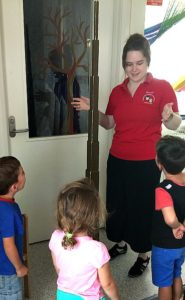
Matching, comparing, classifying, sequences and patterns, – Same, different, match one aspect such as colour, shape, size, identify and copy patterns. Bigger, smaller, colour names, same, different, more, less
Seriation and Ordering – Put objects in order of size, weight, length. First, second, third, last.
Predicting and estimating – Understanding cause and effect relationships, predicting story endings, what will happen if? How many peas are on your plate?
Logic and Problem solving – As your child’s understanding grows, involve him or her in helping to solve every day problems. Talk through the steps you are taking to complete a job such as household repairs. Ask them to help you divide snacks up so each person gets the same amount.
Use every Day Activities to promote children’s mathematical learning.
Cooking
Cooking provides many opportunities to discuss mathematical concepts –
Reading the recipe, finding each item needed, and placing it in the order it is to be used. Weighing and measuring ingredients – is the cup full, how heavy is it? Add some more, take some away, divide the mixture into equal sizes for biscuits and pancakes. How long will it cook? Use cookie cutter shapes.
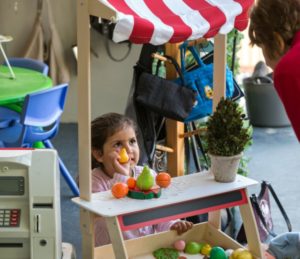 Shopping
Shopping
Make a list of items to find, and tick them off as you find them. When will you leave, how far away are the shops, how long will that take? Are the items high or low, big or small, heavy or light? Will the items fit in the trolley?
On the way, count cars or busses, identify colours, Identify street signs with numbers, turn right, turn left, go slow, go fast, stop. Identify shapes you see. Count steps from the car to the shop.
Setting the table
How many people? How many forks, knives, plates etc? Big or small plates. Are there the right number of chairs? Fill the water jug. Who has the biggest serving?
Toys and Games for Maths Concepts
Board games, construction materials such as blocks, magnetic shapes, mobile, jig saw puzzles, card games, railway tracks, car parking, play dough, sand and water play with measuring jugs and cups, arranging natural objects. Pretend play with other children or adults – for example shops, hospitals, café. Sorting household objects such as buttons, containers, or the clean laundry.
Other Ideas
Have a monthly measurement chart for your child.
Keep a weather calendar
Involve your child in writing important events on a yearly calendar. Count down the days till events are going to happen.
Write up a daily routine with times for usual activities.
Interacting and talking with your child will give you an understanding of their emerging mathematical understandings.
If you have any concerns, discuss them with your child’s educator who can give you information about the child’s progress at preschool.
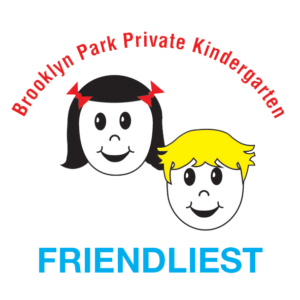
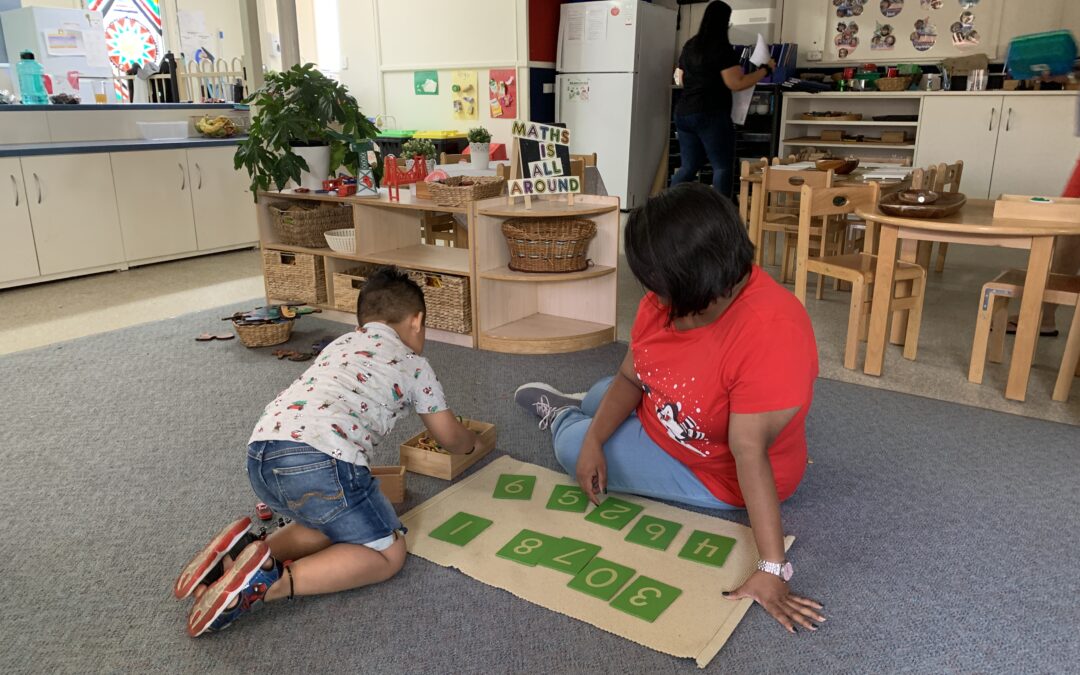

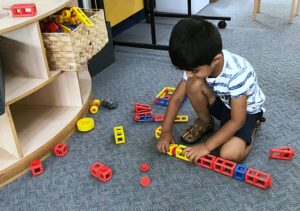 .
.